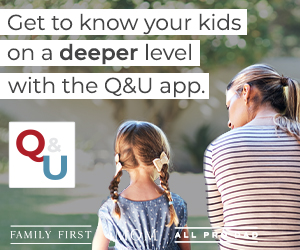Remember the anti-drug PSA from the ’80s, with the egg? The voiceover said, “This is your brain.” Then the egg was cracked into a sizzling-hot frying pan. And then, say it with me: “This is your brain on drugs. Any questions?” The campaign was effective because it made people realize the effects of drug use were happening under the surface. But there is a different epidemic that is sweeping through families today that needs its own PSA: unforgiveness.
We are hanging on to anger, resentment, and offense, thinking it hurts the other person. But as the saying goes, “Unforgiveness is like swallowing poison and expecting the other person to die.” The damage it does isn’t just emotional, though. When we don’t forgive, our brains are affected, too. Here’s the reason why.
That constant feeling of anger or unforgiveness puts us in perpetual fight-or-flight mode. You probably learned about fight-or-flight in biology or on a NatGeo special—you know, the gazelle that leaps away as soon as it senses danger (flight). Then there’s the guy who involuntarily punches his buddy who leaps out from around a corner to scare him (fight). These are automatic responses, built in to help us survive.
By hanging on to your anger, your brain is focused on survival and leaves you in a state of high alert. We aren’t meant to live in survival mode. Constantly staying in that state isn’t healthy for a few reasons.
It makes the hurt go deeper.
With unforgiveness, we play the scenario over and over again in our heads. Yes, rehearsing that conversation or scenario drives us crazy. But the real damage is that each time we think about it, the hurt gets further embedded. Think of it like a car driving in circles that are gradually getting deeper and deeper in the ground.
We open ourselves to more hurt.
Unforgiveness makes us more susceptible to pain because it increases the sensitivity of the part of our brain that activates the emotion. So you are literally multiplying negativity and what hurts you when you don’t forgive.
It damages our memory.
Too much of the stress hormone, cortisol, causes your brain (particularly the part responsible for memory) to atrophy. I don’t know about you, but between momnesia and juggling all of life’s responsibilities, I can’t spare any of my memory.
The great news:
Studies have found that not only does the act of forgiveness reap huge rewards for your health, but there is an increase in the forgiveness-health connection as you age. So if you think it’s too late to forgive or there’s no point in forgiving now, you’re wrong. There’s a greater need (and benefit) now than ever.
What is keeping you from offering forgiveness to someone who has hurt you?








